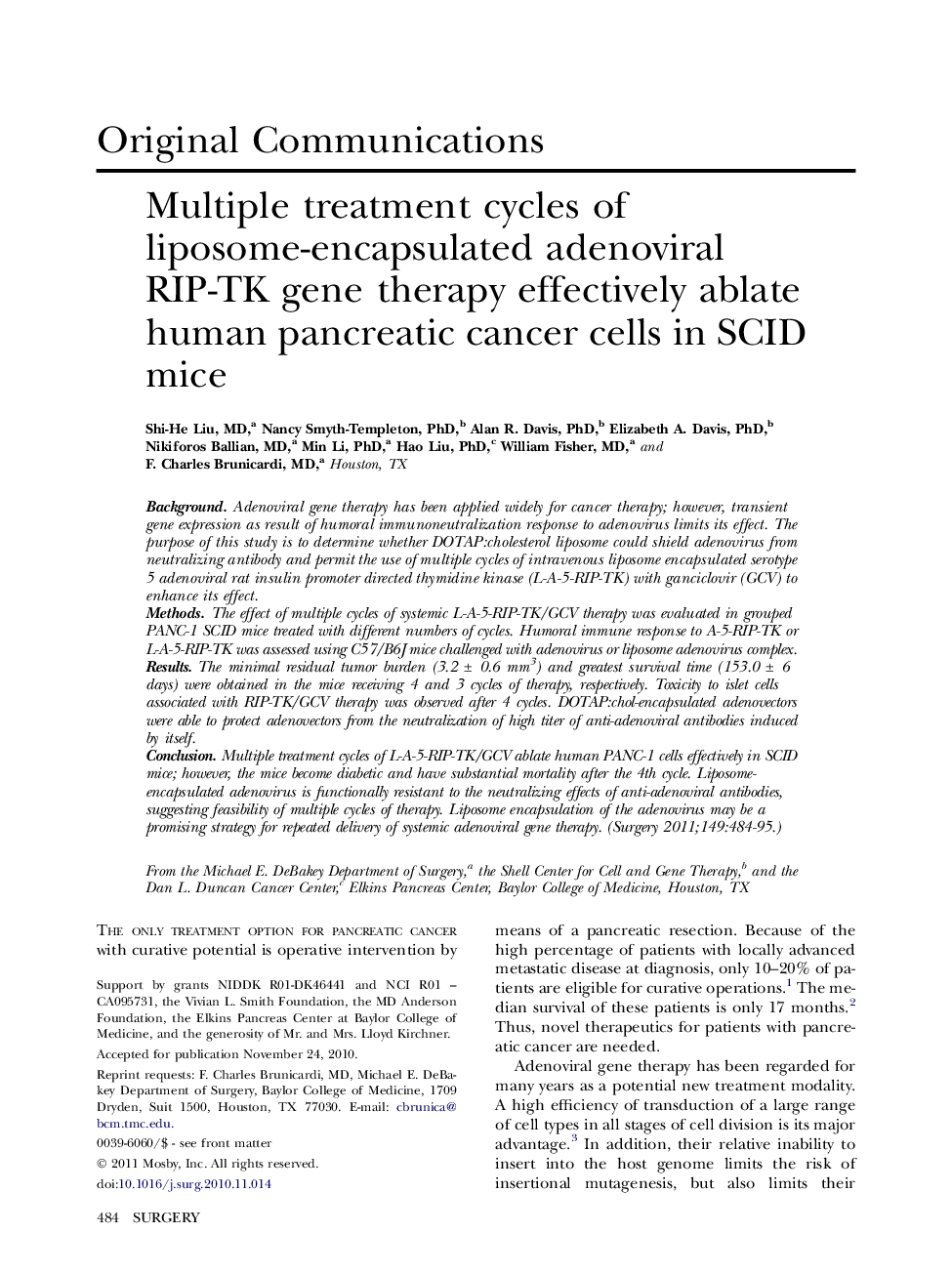| Article ID | Journal | Published Year | Pages | File Type |
|---|---|---|---|---|
| 4308883 | Surgery | 2011 | 12 Pages |
BackgroundAdenoviral gene therapy has been applied widely for cancer therapy; however, transient gene expression as result of humoral immunoneutralization response to adenovirus limits its effect. The purpose of this study is to determine whether DOTAP:cholesterol liposome could shield adenovirus from neutralizing antibody and permit the use of multiple cycles of intravenous liposome encapsulated serotype 5 adenoviral rat insulin promoter directed thymidine kinase (L-A-5-RIP-TK) with ganciclovir (GCV) to enhance its effect.MethodsThe effect of multiple cycles of systemic L-A-5-RIP-TK/GCV therapy was evaluated in grouped PANC-1 SCID mice treated with different numbers of cycles. Humoral immune response to A-5-RIP-TK or L-A-5-RIP-TK was assessed using C57/B6J mice challenged with adenovirus or liposome adenovirus complex.ResultsThe minimal residual tumor burden (3.2 ± 0.6 mm3) and greatest survival time (153.0 ± 6 days) were obtained in the mice receiving 4 and 3 cycles of therapy, respectively. Toxicity to islet cells associated with RIP-TK/GCV therapy was observed after 4 cycles. DOTAP:chol-encapsulated adenovectors were able to protect adenovectors from the neutralization of high titer of anti-adenoviral antibodies induced by itself.ConclusionMultiple treatment cycles of L-A-5-RIP-TK/GCV ablate human PANC-1 cells effectively in SCID mice; however, the mice become diabetic and have substantial mortality after the 4th cycle. Liposome-encapsulated adenovirus is functionally resistant to the neutralizing effects of anti-adenoviral antibodies, suggesting feasibility of multiple cycles of therapy. Liposome encapsulation of the adenovirus may be a promising strategy for repeated delivery of systemic adenoviral gene therapy.
